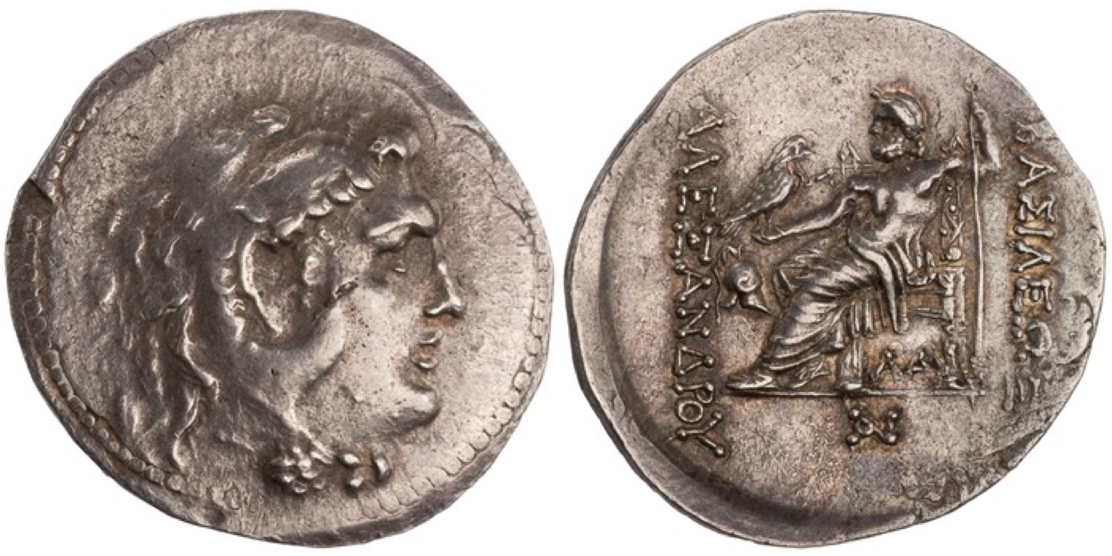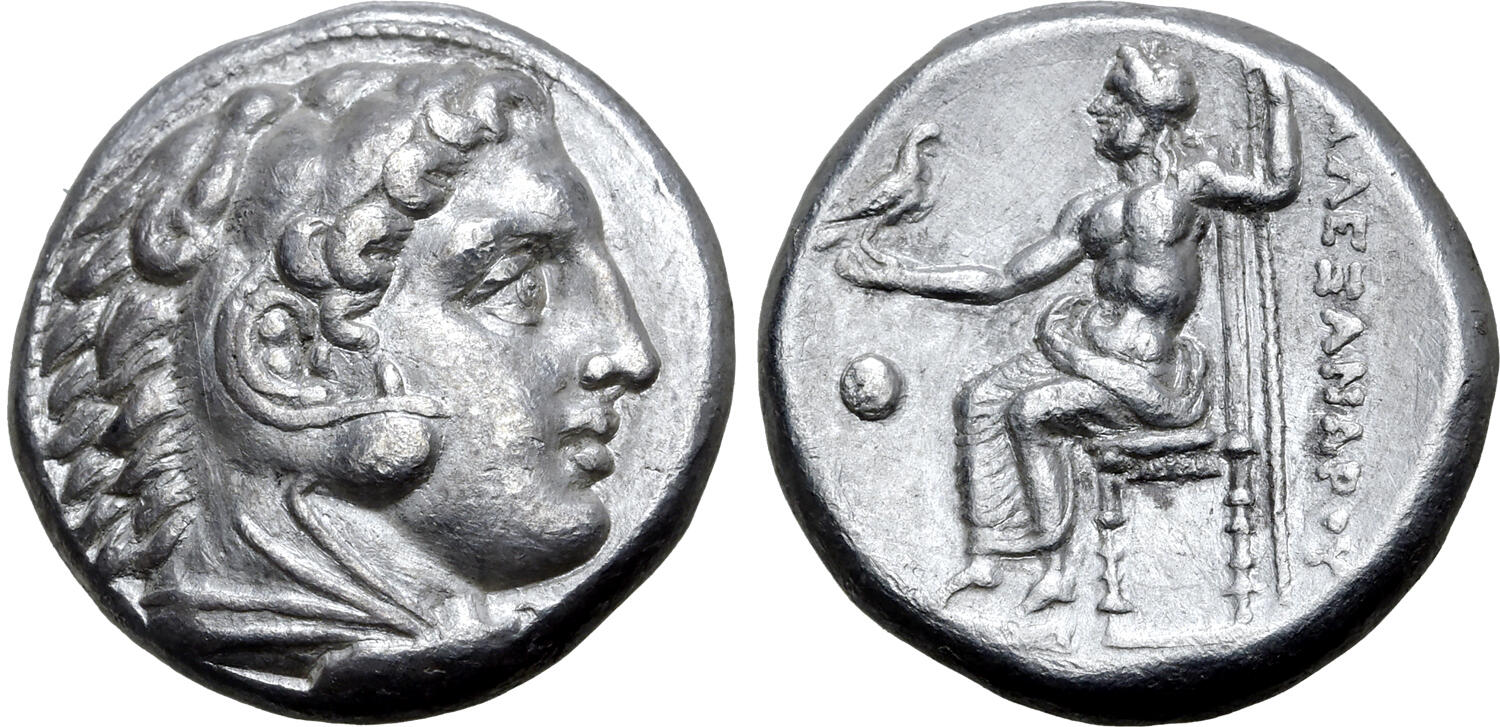150 BCE - 100 BCE | BAΣΙΛΕΩΣ AΛΕΞANΔΡΟΥ
Overstriking coin
DB_Overstrikes_783.png [Museum website]
Overstruck variety
Alexander the great tetradrachm.jpg
[1]
| Museum collectionMuseum collection:
|
New York, American Numismatic Society, 1949.21.5
|
Sale(s)Sale(s) ᵖ:
|
Berliner Münz Auktion 15 (29-30/04/1982), n° 13
|
|
|
|
Description
| ObverseInscription or printing placed on the obverse.:
|
Head of Herakles right, wearing lion skin headdress. Border of dots.
|
ReverseInscription or printing placed on the reverse.:
|
BAΣΙΛΕΩΣ AΛΕΞANΔΡΟΥ (Greek) Zeus enthroned left, holding eagle and scepter. Under the throne, ΛA. In left field, Corinthian helmet. In exergue, monogram (AI).
|
Mint and issuing power
| MintIdentifies the place of manufacture or issue of a numismatic object.:
|
Mesembria
|
Ancient regionAncient region.
|
Thrace
|
Modern countryModern country: Bulgaria
|
AuthorityIdentifies the issuing power. The authority can be "pretended" when the name or the portrait of X is on the coin but he/she was not the issuing power. It can also be "uncertain" when there is no mention of X on the coin but he/she was the issuing power according to the historical sources:
|
Alexander III the Great (Argead king, 336-323 BC)
|
Chronology
| FromIdentifies the initial date in a range assigned in a numismatic context. 150 BCE toIdentifies the final date in a range assigned in a numismatic context.. 100 BCE
|
Hellenistic 323-30 BC  periodTime period of the numismatic object. periodTime period of the numismatic object.
|
Physical description
MetalThe physical material (usually metal) from which an object is made.: Silver 
|
WeightWeight of the numismatic object (in grams). in grams: 16.6716.67 g <br />16,670 mg <br />
|
DenominationTerm indicating the value of a numismatic object. Examples: tetradrachm, chalkous, denarius.: tetradrachm 
|
AxisDescribes the directional relationship between the obverse and reverse of a numismatic object.: 1212 mm <br />1.2 cm <br />
|
| DiameterDescribes diameter of an object (in mm).: 33.533.5 mm <br />3.35 cm <br />
|
StandardStandard.: Attic
|
References
| Coin referenceReference of the Coin:
|
Callataÿ 2021a, p. 276, n° 9
|
Coin series referenceReference to coin series study:
|
Price 19911Price 1991, n° 1032, Karayotov 19922Karayotov 1992, n° 96, Karayotov 19943Karayotov 1994, p. 88, n° 157 (O23-R77 monogram 25), Callataÿ 1994b4Callataÿ 1994b, p. 322, D3/R1b, Callataÿ 1997a5Callataÿ 1997a, p. 93, D3/R1b (Groupe 1), MacDonald 20096MacDonald 2009, p. 212, no. 2, Callataÿ 2021a7Callataÿ 2021a, p. 276, n° 9
|
| Coin series web referenceCoin series web references:
|
|
Description
| ObverseInscription or printing placed on the obverse.:
|
visible: traces of border of dots and the outline of the lion's skin
|
ReverseInscription or printing placed on the reverse.:
|
visible: head of Zeus
|
Mint and issuing power
| MintIdentifies the place of manufacture or issue of a numismatic object. ᵖ:
|
|
Ancient regionAncient region. ᵖ
|
|
Modern countryModern country:
|
AuthorityIdentifies the authority in whose name (explicitly or implicitly) a numismatic object was issued. ᵖ:
|
|
Chronology
| FromIdentifies the initial date in a range assigned in a numismatic context. toIdentifies the final date in a range assigned in a numismatic context..
|
Hellenistic 323-30 BC  periodTime period of the numismatic object. periodTime period of the numismatic object.
|
Physical description
References
Date: c. 250-175 BC (PELLA) ; c. 225-175 BC (Period II, Karayotov)


